Intro
Embark on a rewarding Cyber Security Career, protecting the digital world from cyber threats. Learn about in-demand jobs, required skills, and certifications. Discover how to safeguard networks, systems, and data from hackers and cyber attacks, and explore the vast opportunities in this growing field, including security analyst, penetration tester, and more.
The world is becoming increasingly digital, and with this shift comes a growing need for cybersecurity professionals to protect our online identities, data, and infrastructure. Cybersecurity careers are in high demand, and for good reason – the threat of cyberattacks is a pressing concern for governments, businesses, and individuals alike. In this article, we'll explore the importance of cybersecurity careers, the various roles and specializations within the field, and provide guidance on how to get started in this exciting and rapidly evolving industry.
The Importance of Cybersecurity Careers
Cybersecurity is a critical component of our digital lives, and the consequences of neglecting it can be severe. Cyberattacks can result in data breaches, financial losses, and compromised sensitive information. As more and more of our lives move online, the need for skilled cybersecurity professionals has never been greater. According to a report by Cybersecurity Ventures, the global cybersecurity market is expected to reach $300 billion by 2024, with an estimated 3.5 million unfilled cybersecurity jobs by 2025.
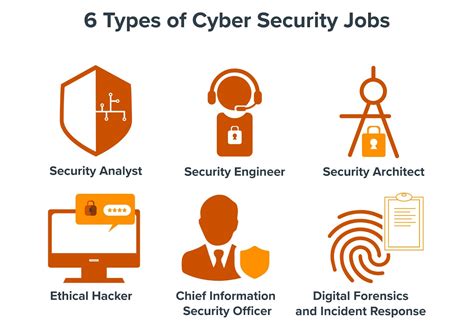
Types of Cybersecurity Careers
The field of cybersecurity is vast and diverse, with a range of roles and specializations to suit different skills and interests. Some of the most common types of cybersecurity careers include:
1. Security Analyst
Security analysts monitor computer systems and networks for security breaches, vulnerabilities, and threats. They use their analytical skills to identify and mitigate potential risks, and develop strategies to prevent future attacks.
2. Penetration Tester
Penetration testers, also known as pen testers, simulate cyberattacks on computer systems and networks to test their defenses. They use their findings to identify vulnerabilities and develop strategies to improve security.
3. Incident Responder
Incident responders respond to cybersecurity incidents, such as data breaches and malware outbreaks. They work to contain the damage, mitigate the threat, and restore systems to normal operation.
4. Chief Information Security Officer (CISO)
CISOs oversee the overall cybersecurity strategy for an organization. They develop and implement security policies, manage budgets, and ensure compliance with regulatory requirements.
5. Cybersecurity Consultant
Cybersecurity consultants work with organizations to assess their cybersecurity posture and provide recommendations for improvement. They may specialize in specific areas, such as cloud security or risk management.
Getting Started in Cybersecurity Careers
If you're interested in pursuing a career in cybersecurity, here are some steps to get started:
1. Develop Your Skills
Cybersecurity professionals need a strong foundation in technical skills, such as programming, networking, and operating systems. Consider taking courses or earning certifications to develop your skills in areas like CompTIA Security+, CISSP, or CEH.
2. Earn a Degree
While not always required, earning a degree in a field related to cybersecurity, such as computer science or information assurance, can be beneficial.
3. Gain Experience
Look for internships or entry-level positions in cybersecurity to gain hands-on experience and build your network.
4. Stay Up-to-Date
Cybersecurity is a constantly evolving field, with new threats and technologies emerging all the time. Stay current with industry news, research, and best practices to stay ahead of the curve.
5. Consider Certifications
Certifications, such as CompTIA Security+ or CISSP, can demonstrate your expertise and commitment to the field.
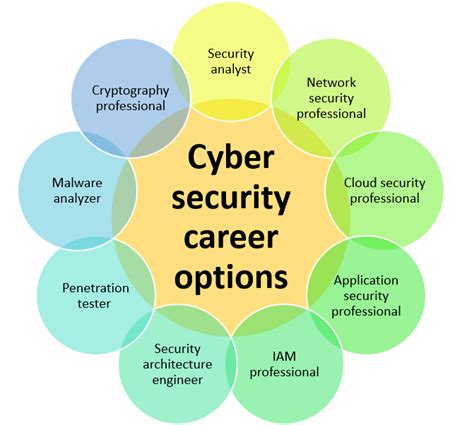
Cybersecurity Career Paths
Cybersecurity careers can be categorized into several main career paths:
1. Security Engineering
Security engineers design and implement secure systems and networks. They develop solutions to prevent and mitigate security threats.
2. Incident Response
Incident responders respond to cybersecurity incidents, such as data breaches and malware outbreaks. They work to contain the damage, mitigate the threat, and restore systems to normal operation.
3. Security Consulting
Security consultants work with organizations to assess their cybersecurity posture and provide recommendations for improvement. They may specialize in specific areas, such as cloud security or risk management.
4. Penetration Testing
Penetration testers simulate cyberattacks on computer systems and networks to test their defenses. They use their findings to identify vulnerabilities and develop strategies to improve security.
5. Security Management
Security managers oversee the overall cybersecurity strategy for an organization. They develop and implement security policies, manage budgets, and ensure compliance with regulatory requirements.
Cybersecurity Career Salaries
Cybersecurity career salaries vary depending on the role, location, and industry. According to the Bureau of Labor Statistics, the median salary for information security analysts in the United States was $103,590 in May 2020.
Here are some approximate salary ranges for common cybersecurity careers:
- Security Analyst: $60,000 - $100,000 per year
- Penetration Tester: $80,000 - $120,000 per year
- Incident Responder: $70,000 - $110,000 per year
- CISO: $120,000 - $200,000 per year
- Cybersecurity Consultant: $80,000 - $150,000 per year
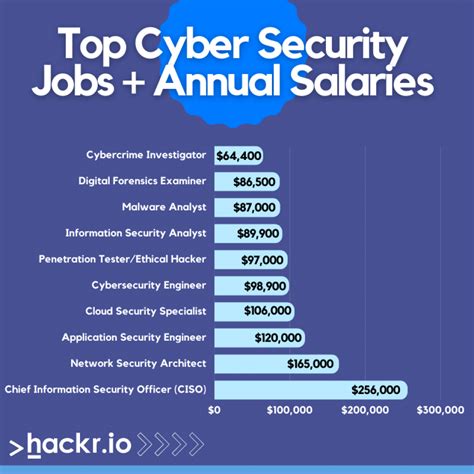
Conclusion
Cybersecurity careers are in high demand, and for good reason – the threat of cyberattacks is a pressing concern for governments, businesses, and individuals alike. With a range of roles and specializations to suit different skills and interests, there's never been a better time to pursue a career in cybersecurity. By developing your skills, earning a degree, gaining experience, staying up-to-date, and considering certifications, you can set yourself up for success in this exciting and rapidly evolving industry.
Gallery of Cybersecurity Careers
Cybersecurity Careers Image Gallery
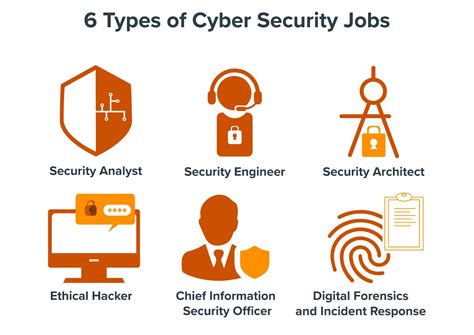
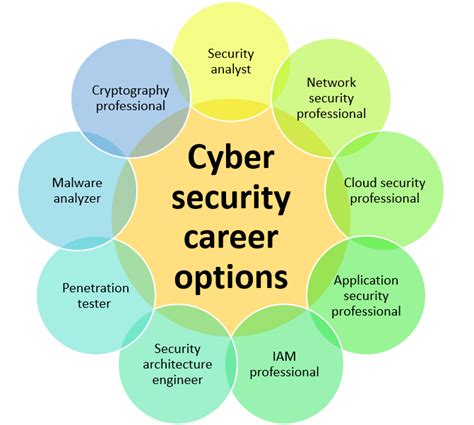
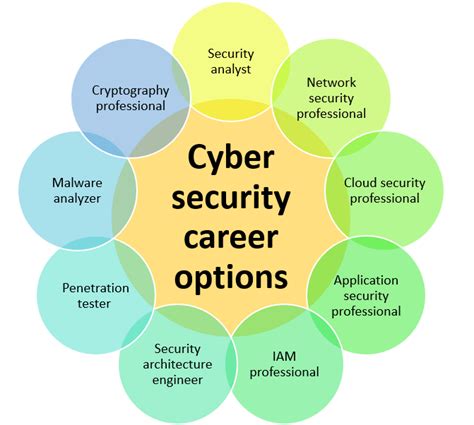
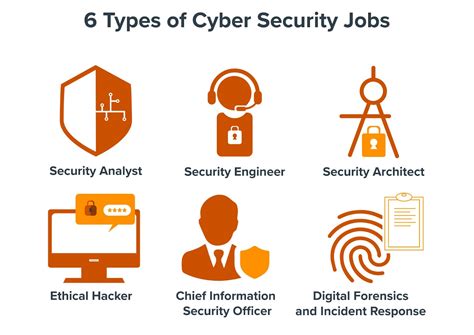

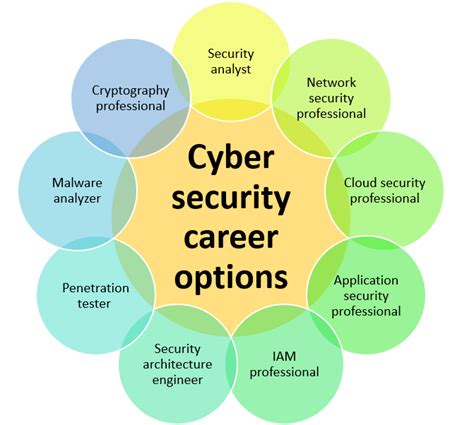
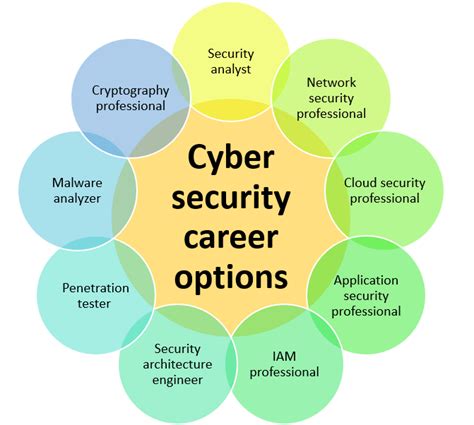
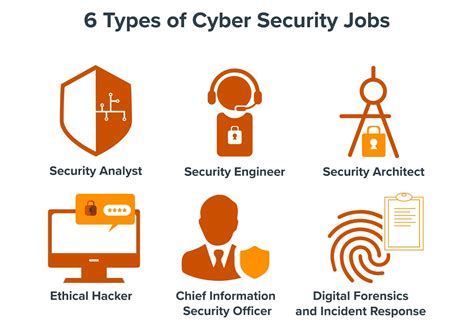
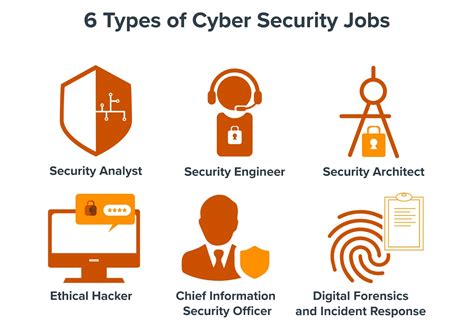

FAQs
What is cybersecurity?
+Cybersecurity is the practice of protecting computer systems, networks, and sensitive information from unauthorized access, use, disclosure, disruption, modification, or destruction.
Why is cybersecurity important?
+Cybersecurity is important because it helps protect sensitive information, prevents financial losses, and ensures the integrity of computer systems and networks.
What are some common cybersecurity careers?
+Some common cybersecurity careers include security analyst, penetration tester, incident responder, CISO, and cybersecurity consultant.
